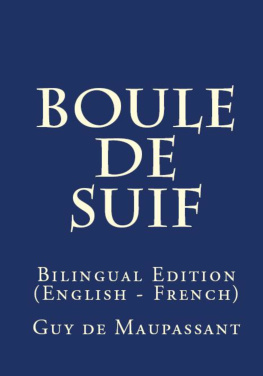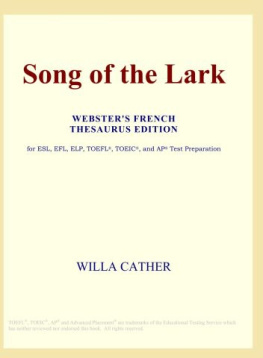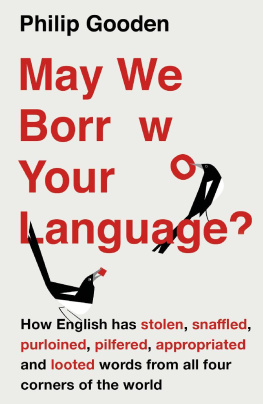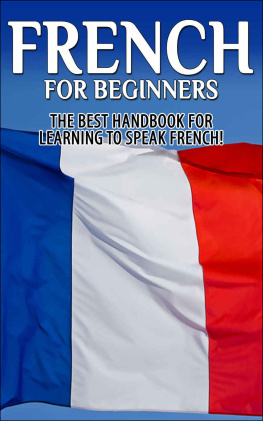Contents
Guide
Page List
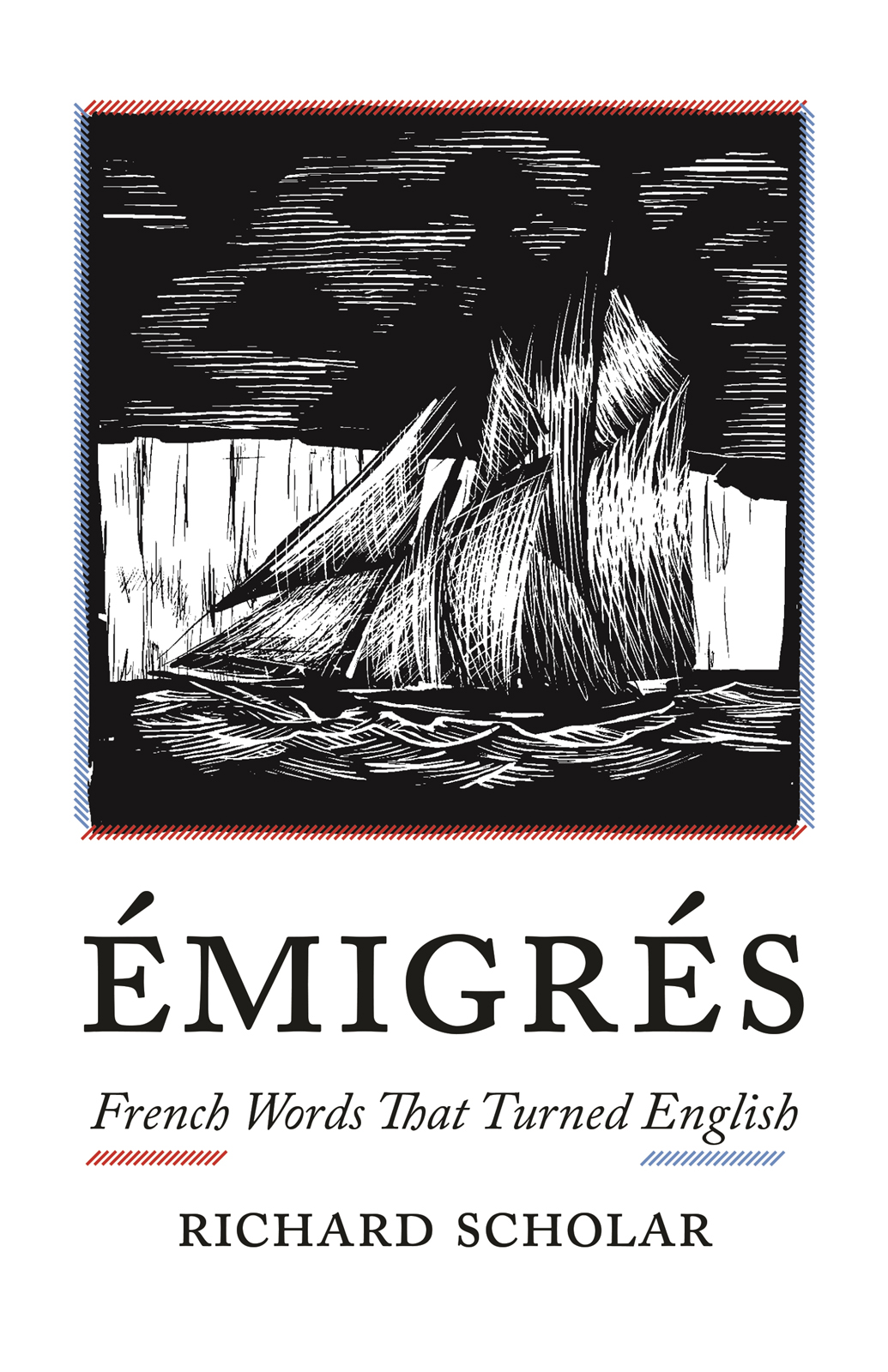
MIGRS
migrs
FRENCH WORDS THAT
TURNED ENGLISH

Richard Scholar
PRINCETON UNIVERSITY PRESS
PRINCETON & OXFORD
Copyright 2020 by Princeton University Press
Requests for permission to reproduce material from this work
should be sent to
Published by Princeton University Press
41 William Street, Princeton, New Jersey 08540
6 Oxford Street, Woodstock, Oxfordshire OX20 1TR
press.princeton.edu
All Rights Reserved
Library of Congress Cataloging-in-Publication Data
Names: Scholar, Richard, author.
Title: migrs : French words that turned English / Richard Scholar.
Description: 1st. | Princeton : Princeton University Press, 2020. | Includes bibliographical references and index.
Identifiers: LCCN 2020003918 (print) | LCCN 2020003919 (ebook) | ISBN 9780691190327 (hardback) | ISBN 9780691209586 (ebook) | Version 1.0
Subjects: LCSH: English languageGallicisms. | English languageForeign elementsFrench. | French languageInfluence on English.
Classification: LCC PE1582.F8 S36 2020 (print) | LCC PE1582.F8 (ebook) | DDC 422/.441dc23
LC record available at https://lccn.loc.gov/2020003918
LC ebook record available at https://lccn.loc.gov/2020003919
British Library Cataloging-in-Publication Data is available
Editorial: Ben Tate and Josh Drake
Production Editorial: Natalie Baan
Jacket Design: Layla Mac Rory
Jacket illustration by John Barnett
In memoriam
Raissa Landor, Michael McCarthy, and A. D. Nuttall
and for
la jeune gnration
CONTENTS
MIGRS
Here We Go Round the Mulberry Bush
IT IS WIDELY to be observed that those wishing, at little effort, to lend a certain intrigue to their English conversation season it with a certain je-ne-sais-quoi or some other soupon of Gallic garniture. Even the introverted Eeyore, on occasion, reaches for the mot juste. Eeyore is the old grey donkey who lives in a corner of a field that is forever England in A. A. Milnes stories about Winnie-the-Pooh and friends. In chapter 6 of Winnie-the-Pooh, it is Eeyores birthday, a fact that his friends have all forgotten. When Pooh Bear chances upon Eeyore and wishes him a good morning, Eeyore doubts that it is a good morning, hinting darkly: We cant all, and some of us dont. Thats all there is to it. Pooh asks Eeyore to explain. The old grey donkey offers the following list of equivalent words and phrases: Gaiety. Song-and-dance. Here we go round the mulberry bush. A puzzled Pooh asks, What mulberry bush is that?, in response to which the donkey merely continues his variations on the theme: Bon-hommy, went on Eeyore gloomily. French word meaning bon-hommy, he explained. Im not complaining, but There It Is.
Et voil: There It Is, indeed, the French word that bursts into flower in the midst of the most English sentence. A word of conspicuously French derivation serves Eeyores purposes well. It would be too painful for him to name in plain English the simple happiness of being alive that the irrepressible Pooh clearly possesses that morning and which the old grey donkey cant and doesnt, at the best of times, but especially when it is his birthday and They have all Forgotten. Instead, Eeyore names obliquely the capacity for happiness that is denied him, alluding to popular English rhymes that speak of it and producing synonyms that name it. He brilliantly introduces the last of these synonyms, bon-hommy, as a French word possessing the meaning of the selfsame word in English. He thereby specifies that meaning as evident to the likes even of Pooh Bear, while using the Frenchness of the word to emphasize its distance from himself, the discontented grey English donkey. His single-word code mixing of French in English at once connects him to, and separates him from, French ways of saying and being.
Eeyores flourishing of bon-hommy is an act of expressive indirection that reveals much about the history of English in its centuries-old relation with French. An equally revealing, if unconscious, act lies at the heart of a story widely told of the forty-third president of the United States of America. George W. Bush was said to have remarked, in July 2002, to his closest ally in international politics, the UK prime minister Tony Blair, that the problem with the French is that they dont have a word for entrepreneur. Whether or not the anecdote is trueand its truth is disputedmatters less, for our purposes, than the fact that it struck a chord with so many people. It circulated at a time of strain in relations between the governments of the three nations, which were taking up different positions in the crisis that eventually saw the UK join the US-led invasion of Iraq in March 2003, opposed by France. The anecdote showed the Anglo-American alliance, in the shape of its leader, revealingeven in the act of denigrating the irksome Frenchhow much the alliance owed to French language and culture. It suggested that many, in the English-speaking world, turn to French much more than they would like to think they do.
We live at a time when the linguistic traffic is, in general, moving much more heavily from English into French than in the contrary direction. After the British empire spread English across the world in the eighteenth and nineteenth centuries, the USA entrenched English as a global lingua franca in the twentieth century, causing the unprecedented amount of lexical borrowing from English that is currently taking place in French and other languages.
This situation ought not to be allowed to conceal a longer and more complex story of linguistic and cultural interaction. Anglophones have borrowed words from French, as Eeyore did consciously and George W. Bush (it seems) did unconsciously, for centuries. More words have entered English from French than from any other modern foreign language. These French words may be said to have turned English in more ways than one. Most have become naturalized. They have done so by means of a process of adoption that is as old as the English language itself, and so thorough that the speaker of English often retains little or no sense of their foreign provenance. It may come as a surprise to many readers, for example, that each of the nouns in the very first sentence of this booknot just je-ne-sais-quoi, soupon, and garniture, as might be expected, but also intrigue, conversation, and effortwould have struck seventeenth-century English speakers as a floridly French foreignism. It is a curious fact of linguistic history that while English has fully naturalized many such words, some have over the centuries visibly retained signs of their foreign derivation, eluding translation and resisting naturalization. They may carry traces of their French roots in their pronunciation and spelling. They are often set in italic type to distinguish them from the English surrounding them. They lend English a French twist. They are, we might say, French non-natives in the midst of the language we Anglophones use. For that reason, I propose to use the name for such people that English has (in characteristically magpie fashion) borrowed from French, and to call them migrs.
In this book I explore the varied lives that such migrs have led. What role, I ask, have they played in the making of modern English? To what extent have they, in their migrations, revealed or changed important aspects of the French linguistic and cultural setting that first shaped them? And what does the study of these words in migration reveal of the fertile but fraught relationship that England and France have long shared, and that now entangles English- and French-speaking cultures all over the world?



